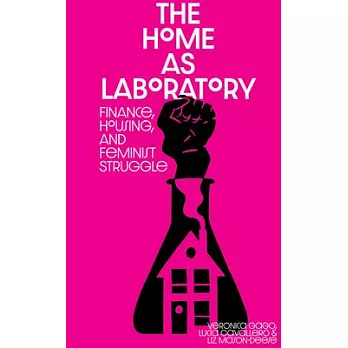The home has become a laboratory for capital but also for forms of financial disobedience.
It has become increasingly clear that home is not a site of private life and isolation, but a battleground where the conflict over the reorganization of working days, over what even counts as labor, is waged. In the very spaces that capital historically sought to portray as an "unproductive" and apolitical space, and refused to pay for, now emerge new forms of debt and profit extraction. Although the home has been transformed into a favored site of finance’s colonization of social life and of experimentation for capital, this is not a finished process-or one without its resistance. The Home as Laboratory traces this story through the links between debt and financial technologies, the violence of property, and reproductive and feminized labor, and everyday forms of feminist organizing. Drawing on militant research and interventions with feminist organizers in informal settlements and renters’ organizations in Buenos Aires, Luci Cavallero, Veróoacute;nica Gago, and Liz Mason-Deese offer a powerful feminist methodology that points to the vital space of the home as an open dispute. They critically analyze the changes that have occurred in domestic routines, in labor dynamics, in the very cuts imposed by the pandemic’s reorganization of the sensible and of logistics. Thus, the home--its spatiality, functioning, and dynamics--suffered from reconfigurations during these novel years of the COVID-19 pandemic that have not ended. Yet, these processes are also resisted by feminist organizations, which have put the question of debt at the forefront of alliance-building, political education, and public interventions. The Home as Laboratory provides key insights into transformations in the home leading up to and during the pandemic, showing how what was historically considered an "unproductive space" became a crucial laboratory for capital and new financial technologies. Luci Cavallero, Verónica Gago, and Liz Mason-Deese analyze how the home has become a site of battles over what work is considered essential, the intensification of paid and unpaid work, often at the same time, the expansion of new forms of financial extraction, and multiple and interconnected forms of violence. But, importantly, by highlighting the research and action of feminist and housing organizations, they also demonstrate how these processes are being resisted on a daily basis.


 天天爆殺
天天爆殺  今日66折
今日66折 
























 博客來
博客來 博客來
博客來 博客來
博客來 博客來
博客來 博客來
博客來